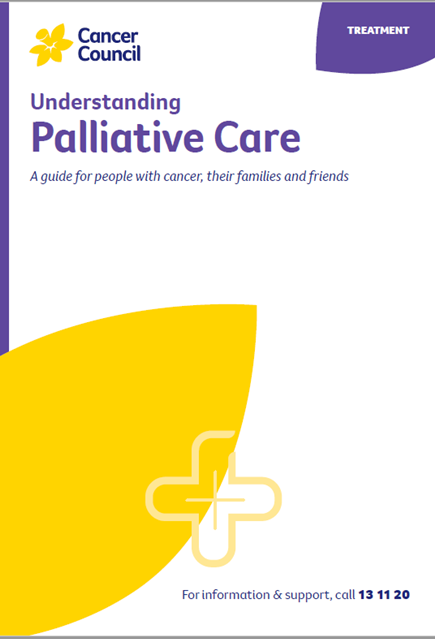- Home
- Prostate cancer
- Advanced prostate cancer
- Palliative treatment
Palliative treatment for prostate cancer
Palliative treatment helps to improve people’s quality of life by managing the symptoms of cancer without trying to cure the disease. You might think that palliative treatment is only for people at the end of their life, but it may help at any stage of advanced cancer. It is about living for as long as possible in the most satisfying way you can.
As well as slowing the spread of cancer, palliative treatment can relieve pain and help manage other symptoms.
Treatment may include:
- radiation therapy to control pain if the cancer has spread to the bones
- pain medicines (analgesics)
- radionuclide therapy to control pain and improve quality of life. This involves swallowing or being injected with radioactive material (e.g. samarium, radium, strontium) which spreads through the body and targets cancer cells. It delivers high doses of radiation to kill cancer cells with minimal damage to normal tissues.
Palliative treatment is one aspect of palliative care, in which a team of health professionals aims to meet your physical, emotional, practical, cultural, social and spiritual needs. The team also provides support to families and carers.
For more on this see, Living with advanced cancer, Palliative care and Pain and cancer.
Clinical trials are testing new treatments for people with prostate cancer that has come back or not responded to treatment. These include a type of radiation therapy called focal brachytherapy and a type of radionuclide therapy known as lutetium PSMA, as well as new drugs. Ask your doctor about recent developments and whether a clinical trial may be an option for you.
→ READ MORE: Cancer stories about prostate cancer
Watch this short video to learn more about palliative treatment.
Podcast for people affected by advanced cancer
Listen now
More resources
A/Prof Ian Vela, Urologic Oncologist, Princess Alexandra Hospital, Queensland University of Technology, and Urocology, QLD; A/Prof Arun Azad, Medical Oncologist, Urological Cancers, Peter MacCallum Cancer Centre, VIC; A/Prof Nicholas Brook, Consultant Urological Surgeon, Royal Adelaide Hospital and A/Prof Surgery, The University of Adelaide, SA; Peter Greaves, Consumer; Graham Henry, Consumer; Clin Prof Nat Lenzo, Nuclear Physician and Specialist in Internal Medicine, Group Clinical Director, GenesisCare Theranostics, and Notre Dame University Australia, WA; Henry McGregor, Men’s Health Physiotherapist, Adelaide Men’s Health Physio, SA; Jessica Medd, Senior Clinical Psychologist, Department of Urology, Concord Repatriation General Hospital, NSW; Dr Tom Shakespeare, Director, Radiation Oncology, Coffs Harbour, Port Macquarie and Lismore Public Hospitals, NSW; A/Prof David Smith, Senior Research Fellow, Daffodil Centre, Cancer Council NSW; Allison Turner, Prostate Cancer Specialist Nurse (PCFA), Canberra Region Cancer Centre, Canberra Hospital, ACT; Maria Veale, 13 11 20 Consultant, Cancer Council QLD; Michael Walkden, Consumer; Prof Scott Williams, Radiation Oncology Lead, Urology Tumour Stream, Peter MacCallum Cancer Centre, and Professor of Oncology, Sir Peter MacCallum Department of Oncology, The University of Melbourne, VIC.
View the Cancer Council NSW editorial policy.
View all publications or call 13 11 20 for free printed copies.



